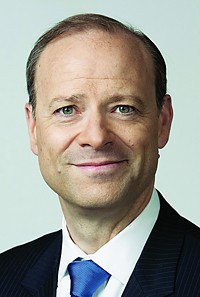Advertisement
Grab your lab coat. Let's get started
Welcome!
Welcome!
Create an account below to get 6 C&EN articles per month, receive newsletters and more - all free.
It seems this is your first time logging in online. Please enter the following information to continue.
As an ACS member you automatically get access to this site. All we need is few more details to create your reading experience.
Not you? Sign in with a different account.
Not you? Sign in with a different account.
ERROR 1
ERROR 1
ERROR 2
ERROR 2
ERROR 2
ERROR 2
ERROR 2
Password and Confirm password must match.
If you have an ACS member number, please enter it here so we can link this account to your membership. (optional)
ERROR 2
ACS values your privacy. By submitting your information, you are gaining access to C&EN and subscribing to our weekly newsletter. We use the information you provide to make your reading experience better, and we will never sell your data to third party members.
Safety
Celebrex Fight
Consumer group says 1999 study of Pfizer's drug reveals heart hazards
by Rick Mullin
February 7, 2005
| A version of this story appeared in
Volume 83, Issue 6
DRUG SAFETY
Consumer advocacy group Public Citizen confronted Pfizer last week over a 1999 study of the drug firm's COX-2 inhibitor Celebrex (celecoxib), claiming that the company has been sitting on unfavorable results. The challenge is one of the first stemming from postings on newly launched clinical trial websites.
Pfizer acknowledges that patients taking Celebrex in the trial involving 425 patients--performed to assess the drug as a treatment for Alzheimer's disease--suffered heart attacks at nearly four times the rate of patients taking placebos.
The company counters, however, that information on the study has been public since 2000. Pfizer also claims that it is not possible to draw clinically meaningful conclusions from the study alone, given variations in patients' medical history. As recently as last October, Pfizer claimed that no completed study of Celebrex had pointed to increased heart risks.
The confrontation comes two weeks before an FDA conference on COX-2 inhibitors, a class of drugs that has been at the center of calls for more public information from clinical trials on drug safety.
Last month, Public Citizen petitioned FDA to ban COX-2 inhibitors on the basis of clinical data that had come to light indicating health risks for several drugs in the category. Sydney M. Wolfe, director of Public Citizen's health research group, says information recently posted on an industry-sponsored website about Pfizer's Celebrex trial supports his group's contention that the drugs are unsafe and that drug companies have suppressed results.
"Public Citizen's cherry-picking of data is alarmist and misconceived," says Joseph M. Feczko, president of worldwide development at Pfizer. Feczko adds that an independent panel monitored the study and that an abstract was presented at a scientific congress in Stockholm in 2000. Wolfe tells C&EN that the conference abstract was a "whitewash" that did not include the negative results that Pfizer posted on the website.
Observers say the confrontation illustrates the potential for confusion as the public gains access to difficult-to-interpret data.
According to Michael A. Valentino, chief consultant for pharmacy benefits management at Veterans Health Administration (VHA), interpreting clinical trial data is a problem even for medical researchers. "For every study that shows harm, you can find two that don't. And vice versa," Valentino says. "You really need to dig a lot deeper."
VHA looks to FDA for guidance, he says. "But we don't stop there. We do our own evaluation and critiques of published studies and, more importantly, we look at experience in our own patient population."
Valentino says VHA is still prescribing and dispensing Celebrex. Meanwhile, managed care giant Kaiser Permanente says it will stop dispensing Pfizer's other COX-2 drug, Bextra (valdecoxib), pending further evaluation of the drug's safety.



Join the conversation
Contact the reporter
Submit a Letter to the Editor for publication
Engage with us on Twitter